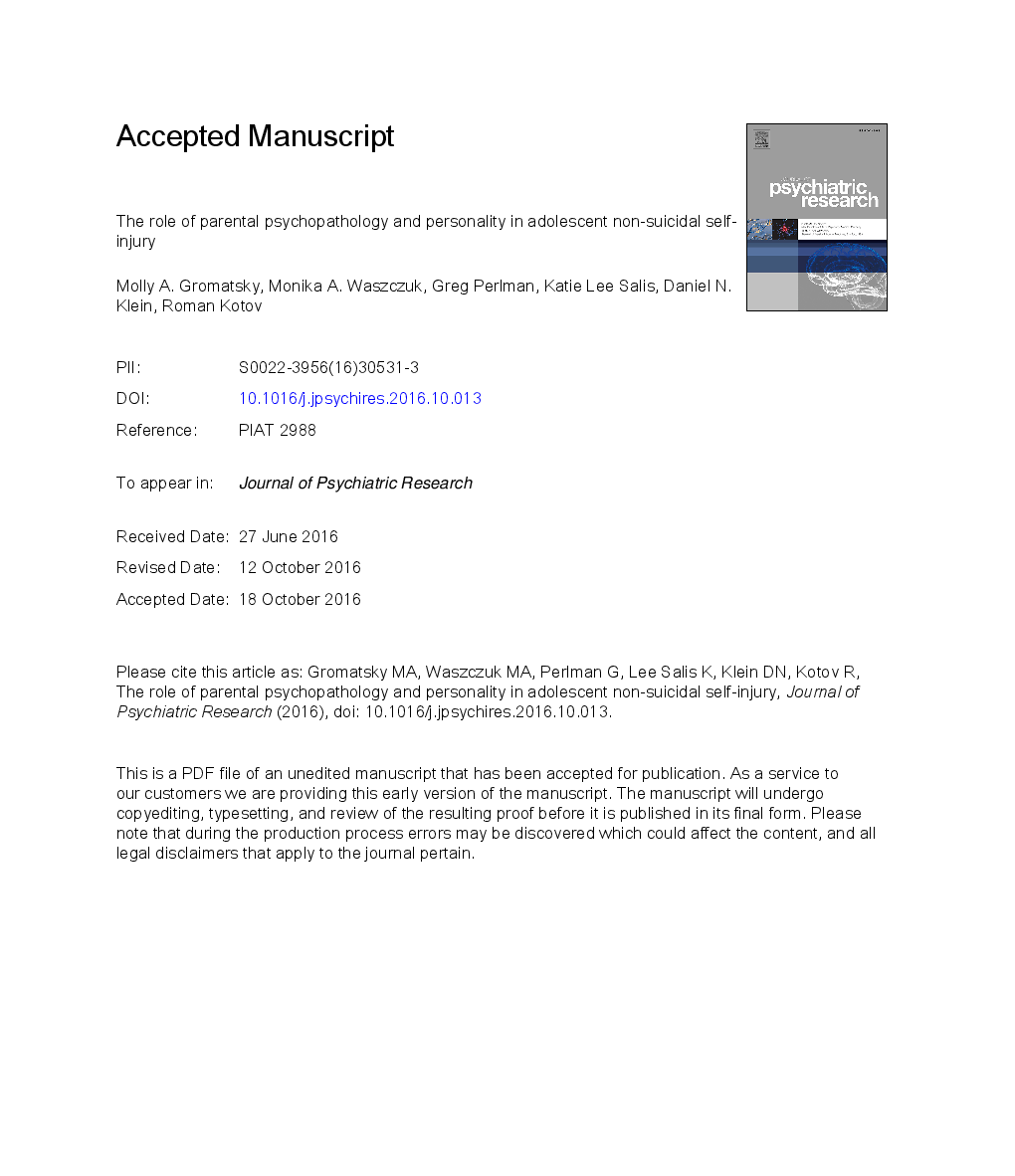ترجمه فارسی عنوان مقاله
نقش روانپزشکی و شخصیت والدین در خودسوزی غیر خودکشی نوجوانان
عنوان انگلیسی
The role of parental psychopathology and personality in adolescent non-suicidal self-injury
| کد مقاله | سال انتشار | تعداد صفحات مقاله انگلیسی |
|---|---|---|
| 120944 | 2017 | 36 صفحه PDF |
منبع

Publisher : Elsevier - Science Direct (الزویر - ساینس دایرکت)
Journal : Journal of Psychiatric Research, Volume 85, February 2017, Pages 15-23
ترجمه کلمات کلیدی
بیش فعالی، بلوغ، صدمات غیر خودکشی، شخصیت، خود انتقاد،
کلمات کلیدی انگلیسی
ADHD; Adolescence; Non-suicidal self-injury; Personality; Self-criticism;

